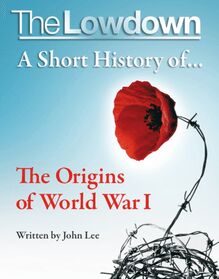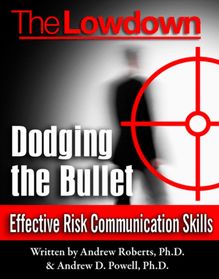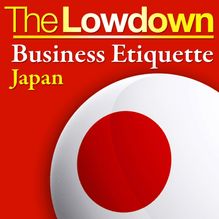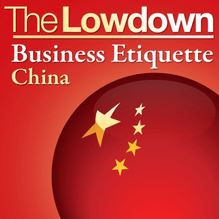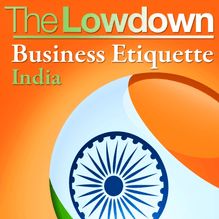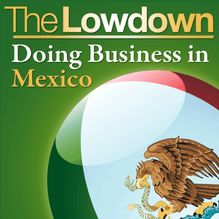-
 Univers
Univers
-
 Ebooks
Ebooks
-
 Livres audio
Livres audio
-
 Presse
Presse
-
 Podcasts
Podcasts
-
 BD
BD
-
 Documents
Documents
-
- Cours
- Révisions
- Ressources pédagogiques
- Sciences de l’éducation
- Manuels scolaires
- Langues
- Travaux de classe
- Annales de BEP
- Etudes supérieures
- Maternelle et primaire
- Fiches de lecture
- Orientation scolaire
- Méthodologie
- Corrigés de devoir
- Annales d’examens et concours
- Annales du bac
- Annales du brevet
- Rapports de stage
La lecture à portée de main
Vous pourrez modifier la taille du texte de cet ouvrage
Découvre YouScribe en t'inscrivant gratuitement
Je m'inscrisLowdown: a Short History of the Origins of the Vietnam War , livre ebook
Découvre YouScribe en t'inscrivant gratuitement
Je m'inscrisEn savoir plus
Vous pourrez modifier la taille du texte de cet ouvrage
En savoir plus

Description
Sujets
Informations
| Publié par | Creative Content |
| Date de parution | 29 septembre 2011 |
| Nombre de lectures | 0 |
| EAN13 | 9781906790462 |
| Langue | English |
Informations légales : prix de location à la page 0,0200€. Cette information est donnée uniquement à titre indicatif conformément à la législation en vigueur.
Extrait
The Lowdown: A Short History of the Origins of the Vietnam War
By David L. Anderson
THE LOWDOWN: A SHORT HISTORY OF THE ORIGINS OF THE VIETNAM WAR
First published in 2011 By Creative Content Ltd, Roxburghe House, Roxburghe House, 273-287 Regent Street, London, W1B 2HA. Copyright 2011 Creative Content Ltd
The moral right of David L. Anderson to be identified as the author of this work has been asserted by him in accordance with the Copyright, Designs and Patents Act, 1988.
All rights reserved. No part of this publication may be reproduced or transmitted in any form by any means, electronic or mechanical, including photocopying, recording or any information storage and retrieval system, without prior permission in writing from the publisher nor be otherwise circulated in any form or binding or cover other than that in which it is published.
In view of the possibility of human error by the authors, editors or publishers of the material contained herein, neither Creative Content Ltd. nor any other party involved in the preparation of this material warrants that the information contained herein is in every respect accurate or complete and they are not responsible for any errors or omissions, or for the results obtained from the use of such material.
The views expressed in this publication are those of the author and do not necessarily reflect the opinion or policy of Creative Content Ltd. or any employing organization unless specifically stated
Typesetting by CPI Rowe Cover Design by Daniel at HCT Design
ISBN 978-1-906790-46-2
www.creativecontentdigital.com
Table of Contents
Chapter 1: Why the Vietnam War Matters A Vietnamese Jefferson or a Vietnamese Lenin? Nam Is a Place, Not Just a War Chapter 2: France Failed First East Collides with West Vietnam for the Vietnamese The French War in Vietnam Chapter 3: Enter the Americans Why Did the Americans Care about Vietnam? Exit the French The Ngo Dinh Diem Solution To Build a Nation in South Vietnam Chapter 4: The American War in Vietnam Kennedy’s War Johnson’s War America’s War The Vietnam War Then and Now
Chapter One
Why the Vietnam War Matters
A Vietnamese Jefferson or a Vietnamese Lenin?
"All men are created equal. They are endowed by their creator with certain unalienable rights; among these are life, liberty, and the pursuit of happiness." First penned in 1776 by the American revolutionary Thomas Jefferson, as the American colonists proclaimed their independence from the mighty British Empire, these stirring words are also the opening salvo of the Vietnamese Declaration of Independence. Standing on a platform festooned with red flags and paper lanterns in Ba Dinh Square, a tree-shaded public park in Hanoi, the veteran Vietnamese revolutionary Ho Chi Minh, with penetrating eyes and a disarming, wispy goatee, boldly proclaimed his country’s independence on September 2, 1945. Just as Americans had done almost two centuries earlier in defiance of the British, the fifty-five year old Ho declared that Vietnamese patriots were, after many decades of French domination, affirming that "all the peoples on the earth are equal from birth" and "have a right to live and to be happy and free." Among the cheering Vietnamese assembled for this auspicious announcement were American military officers, who had worked with Ho and his Vietminh political front to defeat the Japanese imperial forces that had occupied Indochina and had replaced French authority for the previous four years. Envisioning this dramatic scene, and not knowing the tragic saga that would follow, someone might assume that the Americans and Vietnamese had much in common on which to build a harmonious international relationship. In reality, however, the two nations were destined to collide in one of the major twentieth-century wars that would ultimately cost more than two million Vietnamese and more than 58,000 American lives.
How could it have happened? That there was trouble ahead should have been apparent. In contrast to the festive and hopeful atmosphere in Hanoi on that warm Sunday in September, the day turned violent and deadly in Saigon, another French colonial center about 600 miles south of Hanoi. Hundreds of Vietnamese gathered in the city center to listen to Ho’s address on the radio and to cheer independence. As the boisterous crowd paraded down the Rue Catinat, a major shopping street, small arms fire targeted the revelers near the cathedral. A melee ensued as young Vietnamese broke into buildings hunting snipers, looted shops, and beat up Europeans. A stray bullet killed a French priest standing on the steps of the cathedral, and by the end of the day three other people were dead and hundreds had been injured.
Obviously there were serious disagreements about the future direction of Vietnam. "Uncle Ho" and his Vietminh front inspired many Vietnamese who had suffered political and economic oppression under French rule. French merchants, plantation owners, and government officials did not want to relinquish the economic and social perks of colonial control that they enjoyed. Caught between the revolutionaries and the colonialists, Vietnamese, from peasant farmers to urban entrepreneurs, would be forced into joining one side or the other in this clash. Far from the boulevards of Hanoi and Saigon and the sweltering rice paddies and rubber plantations of rural Vietnam, other powerful conflicting forces were also shaping this emerging conflict.
In wood-paneled, high-ceilinged offices in Washington, Paris, Moscow, and other world capitals, government officials were making decisions on how the future of French Indochina played into the interests of their own countries. During World War II, Nazi occupation and France’s loss of control of its Southeast Asian colony to the Japanese had dealt a blow to French pride and profits that Paris now intended to remedy by reclaiming its prized Oriental possession. Leaders of the United States and the Soviet Union, allied nations during the war, warily watched each other in an emerging Cold War and constantly made their own global strategic calculations. Neither of these powerful nations had a colonial interest in Indochina and both, in fact, claimed that they desired an end to Western colonialism in Asia. Neither could ignore, however, the value of the harbors, resources, and markets of Southeast Asia to itself or its allies in defense of its own international security. The global confrontation between the conflicting interests and ideologies of the United States and the USSR that dominated world affairs for the second half of the twentieth century decisively steered the course of the Vietnamese struggle for independence.
The U.S. response to the conflict in Southeast Asia, which would place over 500,000 American troops in Vietnam by 1968, emerged from Cold War and colonialist calculations. The United States itself was a western colonial power. It had taken the Philippine Islands from Spain in 1898, crushed a Philippine nationalist movement, governed the islands as a colony until 1935, and claimed them as a commonwealth until 1946. In 1945, Washington was in the process of recognizing an independent Filipino regime in Manila and believed that Paris should follow a similar course in Vietnam. Western officials continued to exhibit, however, a colonial arrogance that freedom was something granted to Asians when the parent nation thought they were ready. Despite professions of belief in the right of peoples to choose their own government, both French and American leaders assumed that they knew what was best for the people of Southeast Asia and sought to decide who should lead an independent Vietnam.
-
 Univers
Univers
-
 Ebooks
Ebooks
-
 Livres audio
Livres audio
-
 Presse
Presse
-
 Podcasts
Podcasts
-
 BD
BD
-
 Documents
Documents
-
Jeunesse
-
Littérature
-
Ressources professionnelles
-
Santé et bien-être
-
Savoirs
-
Education
-
Loisirs et hobbies
-
Art, musique et cinéma
-
Actualité et débat de société
-
Jeunesse
-
Littérature
-
Ressources professionnelles
-
Santé et bien-être
-
Savoirs
-
Education
-
Loisirs et hobbies
-
Art, musique et cinéma
-
Actualité et débat de société
-
Actualités
-
Lifestyle
-
Presse jeunesse
-
Presse professionnelle
-
Pratique
-
Presse sportive
-
Presse internationale
-
Culture & Médias
-
Action et Aventures
-
Science-fiction et Fantasy
-
Société
-
Jeunesse
-
Littérature
-
Ressources professionnelles
-
Santé et bien-être
-
Savoirs
-
Education
-
Loisirs et hobbies
-
Art, musique et cinéma
-
Actualité et débat de société
- Cours
- Révisions
- Ressources pédagogiques
- Sciences de l’éducation
- Manuels scolaires
- Langues
- Travaux de classe
- Annales de BEP
- Etudes supérieures
- Maternelle et primaire
- Fiches de lecture
- Orientation scolaire
- Méthodologie
- Corrigés de devoir
- Annales d’examens et concours
- Annales du bac
- Annales du brevet
- Rapports de stage

